
Kristi Bunkers
MIDWEST
DIRECTOR, SOUTH DAKOTA JUVENILE SERVICES, DEPARTMENT OF CORRECTIONS
Kristi Bunkers currently serves as the Director of Juvenile Services for the South Dakota Department of Corrections. In this position, she is responsible for the out-of-home placement of youth committed to the department’s care, as well as re-entry and aftercare services to include policy and process improvement planning for the division. With over twenty-eight years of experience in juvenile justice, Kristi has served on numerous policy committees and councils. She served as a member of the workgroup that was charged with examining South Dakota’s juvenile justice system and preparing policy recommendations to guide reform efforts. She currently serves as a member of the Juvenile Justice Reinvestment Initiative Oversight Council charged with monitoring the impact of the reforms.
Kristi earned an M.S. in Counseling from South Dakota State University. She makes her home in Sioux Falls, South Dakota with her husband Mark, two sons, Logan and Seth and their beloved corgi, Jessi.
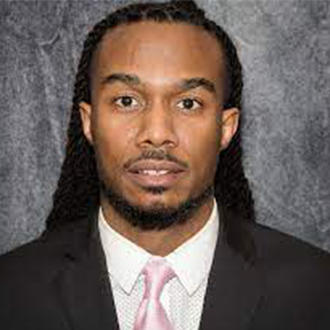
Larome Myrick
NORTHEAST
EXECUTIVE DIRECTOR, RHODE ISLAND, DIVISION OF YOUTH DEVELOPMENT
Larome Myrick is the Executive Director for the Rhode Island Department of Children, Youth and Families Division of Youth Development. He began his career as direct-care staff and promoted to leadership positions in parole services and reentry at the Ohio Department of Youth Services. He holds a bachelor’s degree in healthcare administration and social sciences from the University of Toledo and master’s degree in organizational leadership from Lourdes College. Larome recently earned his PhD.
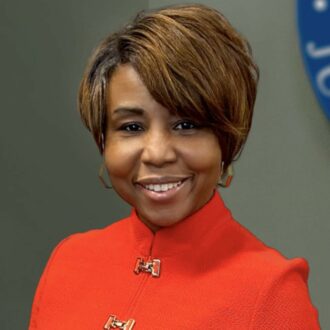
Shawanda Reynolds-Cobb
SOUTH
COMMISSIONER, GEORGIA DEPARTMENT OF JUVENILE JUSTICE
Shawanda Reynolds-Cobb currently serves as the Commissioner of the Georgia Department of Juvenile Justice (DJJ). She is responsible for the daily operation of more than 3,400 funded employee positions that hold justice-involved youth accountable for their actions through probation supervision and secure detention.
Prior to her appointment, Commissioner Reynolds-Cobb served as Assistant Commissioner and Chief of Staff, overseeing the operational aspects of DJJ, including the Division of Administrative Services, Division of Community Services, Division of Secure Facilities, Division of Treatment and Care, and Office of Professional Development and Standards.
Commissioner Reynolds-Cobb has 30 years of experience in government service, beginning her career with the State of Georgia at the Criminal Justice Coordinating Council (CJCC) in 1993. While at CJCC, Mrs. Reynolds-Cobb managed the daily operations of the Georgia Crime Victims Compensation Program, including the DUI Sign Program, Restitution Program, and the Training and Outreach Program. She also oversaw the Division budget and was the Legislative Liaison for CJCC.
Mrs. Reynolds-Cobb earned her Bachelor’s degree in Psychology with a minor in Criminal Justice from Georgia State University in 1994 and her Master’s degree in Administration from Central Michigan University in 1999.

Anders Jacobson
WEST
DIRECTOR, COLORADO, DIVISION OF YOUTH SERVICES, (CHAIR)
Anders Jacobson was appointed the Director of the Division of Youth Services in 2016. In his position he oversees the operations at 12 State operated youth centers, the juvenile detention system, and parole program services. Jacobson has worked in the juvenile justice field for 26 years, with many of those years spent in leadership roles at residential facilities operated by the state and within the private sector. As the director of DYS, Jacobson has complete oversight of the division’s advanced service delivery system, with a strong focus on outcomes and cross-system partnerships to ensure quality services are provided to youth in the division’s care.
Associate Committee
The CJJA Associate Committee is comprised of individuals who have serviced in the past in the capacity juvenile justice system administrator role (for two years or more).
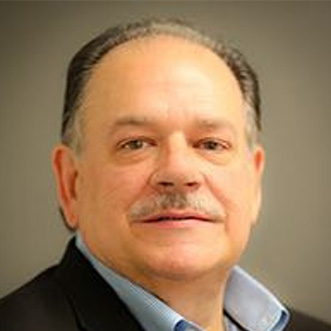
Simon Gonsoulin
Associate Committee Chair
CJJA Associate
Simon is a principal researcher at the American Institutes for Research (AIR) in the Policy, Practice and Systems Change program. He serves the Project Director of the National Technical Assistance Center for the Education of Neglected or Delinquent Children and Youth (NDTAC). He has provided technical assistance on emergency/disaster preparedness for juvenile justice residential facilities across state and local jurisdictions.
Behavioral Health Committee
CJJA has convened a Behavioral Health Committee that includes Mental Health directors and persons directly overseeing mental health programming within jurisdictions to discuss current issues and Best Practices in delivering mental health services to youths.
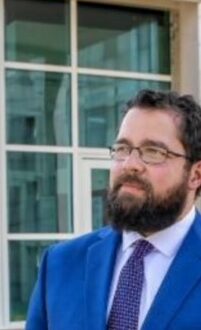
Gerald Rocha
Behavioral Health Committee Chair
Director, Sununu Youth Services Center, New Hampshire Department of Children, Youth and Families
Prior to serving as Director of New Hampshire’s sole secure facility for juvenile justice, Gerald Rocha had clinical oversight of one of New Hampshire’s largest residential treatment facilities. In that role, Gerald provided administrative support for all treatment interventions delivered to youth and families served. This included the cultivation of culture change among residential facilities, infusing trauma-informed care into all of their practices. As Director, Gerald has maintained the same drive to transition culture to embrace a trauma-informed approach. Director Rocha has reinforced the enhancement of clinical practice at the Sununu Youth Services Center, while supporting a foundation of trauma-informed care through interventions provided to the youth by both clinical and direct care staff.
Director Rocha earned his degree in Psychology and Biology from St. Joseph’s College. He has also received his Master’s degree in Clinical Mental Health Counseling from New England College, and has maintained clinical licensure since 2010.
Best Practices Committee
The CJJA Best Practices Committee continually seeks out information about programs and research that would be of significant interest to directors. Presentations are hosted by the CJJA Regions and CJJA Associate members on a rotating basis and are part of the CJJA Business Meetings.
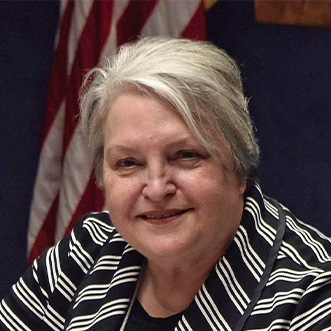
Lisa Bjergaard
Best Practices Committee Chair
Director, North Dakota Division of Juvenile Services
Lisa J. Bjergaard is the Director for the Division of Juvenile Services in North Dakota. DJS is the state’s juvenile corrections agency and is organized under the North Dakota Department of Corrections and Rehabilitation. DJS operates both institutional and community corrections.
Lisa joined the North Dakota Division of Juvenile Services as a case manager in 1989 and in 1993 became the Regional Manager for the eastern half of North Dakota. In 2006, Lisa was named Director.
Code of Practice Committee
Currently, there are no national standards for crisis intervention, violence and harm prevention, or any type of universal behavior response training. The CJJA Code of Practice emphasizes the need for facility safety which involves reducing the use of all forms of restraints (physical, mechanical, and chemical) and reducing or eliminating the use of isolation. This working committee examines data and research on best practices; reviews existing policies and procedures; discusses the most effective practices in the field. The committee’s main purpose is to develop national standards to reflect the least restrictive and most effective intervention strategies for each of the identified practice areas. Establishing national standards will provide guidance to juvenile justice leaders and staff with the goal of encouraging staff to employ effective strategies when working with youth and families. Ultimately, setting national expectations will improve the safety of facilities and positively impact youth and family outcomes.

Susan Burke
Code of Practice Committee Chair
CJJA Associate
As a former probation executive and head of a state juvenile corrections agency, Susan Burke brings nearly 30 years of experience in the justice field to her position as executive director of The Carey Group. She led both adult and juvenile justice reform in Utah; championed legislation to offer treatment rather than incarceration to substance-dependent individuals involved in the criminal justice system; shaped state policies on a variety of justice-related issues; and served on many national boards.
She is the former president of the American Probation and Parole Association and has served on the executive committees for the Council of Juvenile Correctional Administrators, the Justice Center Board for the Council of State Governments, and the National Association of Probation Executives. Susan has used Carey Group Publishing resources in her own agencies to strengthen practices and improve outcomes for system-involved individuals.
Her skills in strategic planning and the application of evidence-based practices resulted in a 15 percent improvement in felony-free behavior for system-involved individuals within a five-year period. She received the Youth Advocate of the Year award in 2002 and again in 2018 from the Utah Board of Juvenile Justice. She also received, from the Council of Juvenile Corrections Administrators, the President’s Award in 2013 and the Outstanding Administrator Award in 2015.
She has spoken at national conferences, been a keynote speaker, and is an inspirational leader for community corrections. She has a strong belief that with the right tools and the right mindset, any justice agency can fulfill its mission to help individuals contribute to a safer community.
Communications Committee
The Communications Committee seeks to provide policy and guidance on engaging with internal and external stakeholders, to include youth and their families, through various media and social platforms. Committee members include public information officers, the individuals responsible for preparing and disseminating agency messages.
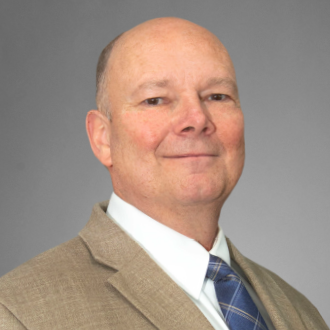
Steven Lafreniere
Communications Committee Chair
Executive Director, Alabama Department of Youth Services
Steven Lafreniere was appointed as Executive Director of the Alabama Department of Youth Services (DYS) July 1st 2014. Prior to coming to DYS, Mr. Lafreniere worked for the Alabama Department of Mental Health (ADMH) for nearly seventeen (17) years and held numerous positions within that department including: Resource Specialists, Coordinator of Child and Family Services (Mental Illness Division); and Director of the Office of Children’s Services for the Department of Mental Health. Prior to state service, he worked for a Community Mental Health Center as a child and family therapist and evaluated youth in detention who had been committed to DYS. He serves on numerous state and national committees related to At-Risk youth and delinquency. He currently serves as Vice President of the Council of Juvenile Justice Administrators (CJJCA). He has worked with youth and families since 1988 through a variety of disciplines and settings.
Mr. Lafreniere is a graduate of Auburn University and Auburn University Montgomery with a Master of Science in Psychology. He lives in Wetumpka Alabama with his wife Kelly and they have two daughters.
Diversity, Equity, and Inclusion (DEI) Committee
The CJJA DEI Committee works to develop best practices pertaining diversity, equity, and inclusion to integrate into juvenile justice policies, procedures and practices.
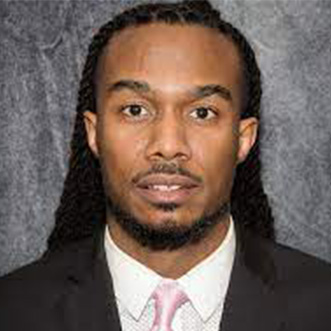
Larome Myrick
Diversity, Equity, and Inclusion (DEI) Committee Chair
Executive Director, Rhode Island DCYF Division of Youth Development
Larome is the Executive Director for the Rhode Island Department of Children, Youth and Families Division of Youth Development. He began his career as direct-care staff and promoted to leadership positions in parole services and reentry at the Ohio Department of Youth Services. He holds a bachelor’s degree in healthcare administration and social sciences from the University of Toledo and master’s degree in organizational leadership from Lourdes College. Larome recently earned his PhD.
Position Paper Committee
The CJJA Position Paper Committee prepare brief articles regarding best practices for issues for juvenile justice field.
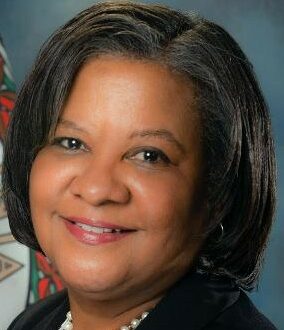
Valerie Boykin
Position Paper Committee Chair
CJJA Associate
Valerie is the former Director of the Department of Juvenile Justice. She has more than 30 years of experience in juvenile justice and human services. She is an experienced Independent Juvenile Justice Consultant and has provided management consultation, training, and technical assistance in a number of human services and juvenile corrections settings. She has consulted with federal governmental agencies such as OJJDP, BJA, Health and Human Services’ Children and Family Services Bureau, and the National Highway and Transportation Administration. Her consultation includes considerable work with various state and local entities, along with non-profit organizations including the Boys and Girls Clubs of America. Ms. Boykin completed undergraduate studies at the University of Virginia in 1980 and received a master’s degree in public administration from Old Dominion University in 1989.
Positive Youth Outcome (PYO) Committee
The Positive Youth Outcomes (PYO) committee, made up of CJJA members, research and clinical staff. The committee seeks to improve juvenile justice agencies’ capacities to collect and utilize positive youth outcomes data. The information will help CJJA come to consensus, and develop guidelines, on the most appropriate and useful methods for collecting and analyzing positive outcome data within juvenile correctional agencies.
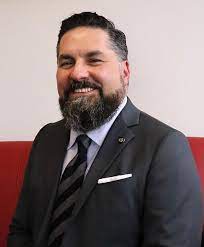
Joe O'Leary
Positive Youth Outcome (PYO) Committee Chair
Director, Oregon Youth Authority
Joe O’Leary became the director of Oregon Youth Authority (OYA) in February 2018, after being appointed by Governor Kate Brown and confirmed by the Oregon Senate. He joined the agency as its deputy director in 2013. His professional experience ranges from working as a public defender to advising two governors on public safety and legal issues.
As director, Joe is responsible for overseeing the operations of the agency, which serves about 1,100 youth ages 12-24 at any given time — about 450 in close custody across the state, and another 650 on probation or parole.
During his tenure, Joe has deepened OYA’s commitment to developmental and therapeutic approaches for youth in the agency’s care; launched an agency initiative focusing on diversity, equity, and inclusion; presided over the construction of new, developmentally appropriate housing and a high school inside two secure facilities; and fostered the agency’s successful effort to reduce its use of secure isolation for youth in custody.
PREA Committee
CJJA has convened a PREA Committee that includes CJJA members, their state PREA Coordinators and national representatives from the PREA Resource Center and Bureau of Justice Assistance (BJA). The Committee provides a forum for members to network, share promising practices, hear from national leaders and gain knowledge from peer discussions focused on addressing the PREA standards.
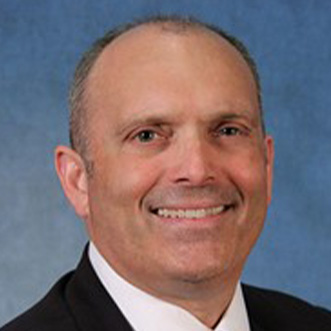
Eric Meaux
PREA Committee Chair
Chief, Maricopa County Juvenile Probation Department (AZ)
Eric Meaux has served as Chief of the Maricopa County Juvenile Probation Department since 2012. Chief Meaux is one of three appointed authorities for the Judicial Branch of Arizona in Maricopa County, the 4th largest county in the U.S. His overall responsibilities include all juvenile custodial intake (secure detention), investigation, diversion, and probation supervision functions involving 5,000 alleged and adjudicated youth annually.
Prior to his appointment in 2012, Chief Meaux served as the Director of the Delinquency and Courts Services Division for Milwaukee County in Wisconsin since 2007. In Wisconsin, Mr. Meaux co-chaired Milwaukee County’s Community Justice Council – Committee on Juvenile Justice, represented Milwaukee County and testified in State Legislative committees including budget hearing sessions, “raise the age” legislation, high-risk offenders, and served as a Governor appointee to the State of Wisconsin’s Juvenile Justice Commission.
Prior to these appointments, Mr. Meaux held various public and private positions serving the juvenile justice field since 1994. Mr. Meaux has a B.S. and M.S. degree in Criminal Justice in addition to an Associate degree in Police Science. His work in the juvenile justice field for both government and non-profit agencies, is supplemented by number of years services as an elected Councilman for the City of Wauwatosa in Wisconsin having served as Council President, Interim Mayor, and Public Safety Committee Chair.
Research and Data Analysis Committee
The Research and Data Analysis Committee is comprised of CJJA members and research/analyst staff. The goal of the committee is to expand the use of data and analysis to enhance the effectiveness of practices, guide policy and practice decisions of juvenile justice leaders, and increase research partnerships. Outcome data provide the basis for designing more effective programs and services, inform decision makers about levels of success related to objectives and examine the effects of programmatic and/or policy changes, and demonstrate accountability for juvenile justice agencies. The committee strives for standardization of measurement and terms to ensure possible comparisons across studies and jurisdictions.
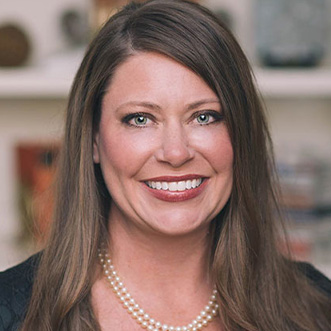
Christy K. Daly
Research and Data Analysis Committee Chair
(former) Secretary, Florida Department of Juvenile Justice
Christy Daly Brodeur has two decades of experience working with the Florida Legislature and Executive Branch on public policy for children and families. Most recently she served as Secretary of the Department of Juvenile Justice where she played an integral role in the development and implementation of data-driven reform in the largest, most comprehensive, juvenile justice system in the country. The success of Florida’s reforms is evidenced by the dramatic drop in all major categories of crime during her tenure, leading to the lowest level of juvenile delinquency in more than 40 years. She has also contributed to the national movement of juvenile justice reform and is seen as a national leader in her field.
Christy is a passionate advocate for children and families and a known collaborator. She has successfully partnered with many stakeholder groups, such as law enforcement, the judiciary, and child welfare and is known to manage challenging issues and competing priorities.
Prior to becoming Secretary, Christy held numerous leadership positions at the Florida Department of Juvenile Justice and the Florida Network of Youth and Family Services. She has worked nationally with the Center for Juvenile Justice Reform at Georgetown University, the Annie E. Casey Foundation and the Council of Juvenile Justice Administrators (CJJA), currently serving as Chair of the Data and Analysis Committee.
Christy currently serves on the board of directors for Goodwill Industries of the Big Bend, the Florida Gubernatorial Fellows Program, Inspire of Central Florida, a non-profit organization that provides employment opportunities and life skills training for adults with developmental disabilities, and was recently appointed by Governor DeSantis to the Volunteer Florida Commission.
